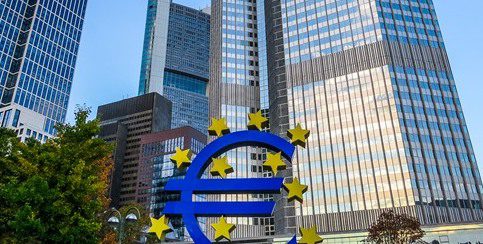ECB to increase the base rate until the neutral zone: Bank of Japan
Noriko Watanabe and Kanako Mita
Modern Tokyo Times

Growing speculation mounts in Europe that the European Central Bank (ECB) is looking to increase the base rate between 0.50 and 0.75 in September. Hence, the goal is to reach a neutral rate of between 1% and 2% by the end of the year.
Francois Villeroy de Galhau, the Central Bank chief of France, believes the 1% to 2% rate is the ideal target. According to Villeroy, the “neutral rate” neither holds back economic growth nor stimulates it falsely.
Reuters reports, “The ECB raised rates by 50 basis points to zero in July to fight inflation that is now approaching double-digit territory and another such move is now fully priced in by financial markets.”
During the U.S. Federal Reserve’s Jackson Hole Economic Symposium, Villeroy espoused his ideas and predictions. He said, “We could be there before the end of the year, after another significant step in September.”
Austria, Germany, and the Netherlands are known for greater economic conservatism. Thus, with America expanding its base rate – unlike Japan: it seems that ECB policymakers from more traditionally conservative economic nations seek to tackle the current economic crisis with similar thinking.
Central Bank leaders from Austria and the Netherlands – voiced the opinion that a 0.75 base hike should be on the table – similar to the proposed 0.50 base increase.
Villeroy implied strongly that the ECB was willing to go higher than the neutral level if the economic tailwind becomes even more severe.
Villeroy said, “Have no doubt that we at the ECB would if needed raise rates further beyond normalization: bringing inflation back to 2% is our responsibility; our will and our capacity to deliver on our mandate are unconditional.”
Lee Jay Walker says, “The ECB is well aware of high inflation and the Federal Reserve in America increasing its base rate aggressively this year. Once the ECB acts, the Bank of Japan might have to alter course concerning its ultra-loose monetary policy?”
NHK reports, “The Bank of Japan has found itself increasingly isolated in recent months as it holds fast to its ultra-easy monetary policy in defiance of a global trend to a tighter supply. Experts note the bank’s dogged refusal to change tack is hurting the yen and harming household budgets but changing course comes with risks of its own.”
Haruhiko Kuroda, head of the Bank of Japan, is adamant that Japan faces different issues. He said, “Somewhat miraculously, now we have 2.4% inflation. But almost wholly caused by the international commodity price hike, energy, and food.”
Kuroda predicts that inflation will turn lower later this year and continue next year. Hence, Kuroda continued, “… we have no choice other than continued monetary easing until wages and prices rise in a stable and sustainable manner.”
Kuroda is adamant that the situation in Japan is unique among the G7 nations.

PLEASE DONATE TO HELP MODERN TOKYO TIMES
Modern Tokyo News is part of the Modern Tokyo Times group
DONATIONS to SUPPORT MODERN TOKYO TIMES – please pay PayPal and DONATE to sawakoart@gmail.com
http://moderntokyotimes.com Modern Tokyo Times – International News and Japan News
http://sawakoart.com – Sawako Utsumi’s website and Modern Tokyo Times artist
https://moderntokyonews.com Modern Tokyo News – Tokyo News and International News
PLEASE JOIN ON TWITTER
https://twitter.com/MTT_News Modern Tokyo Times
PLEASE JOIN ON FACEBOOK